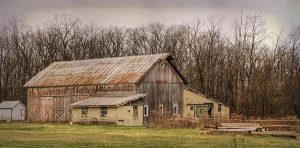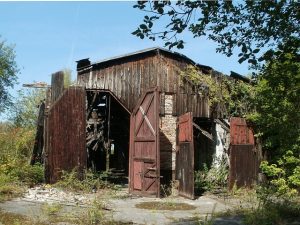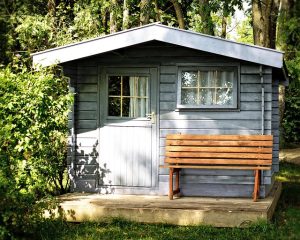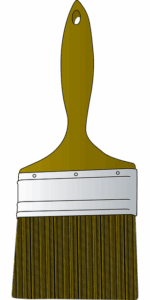Optimizing Farm Shed Design for Albury’s Climate: Materials and Strategies
farm sheds in Albury, New South Wales are critical infrastructure designed with robust materials and efficient design to endure the region's extreme temperature fluctuations and harsh climatic conditions. These structures are fortified wit…….
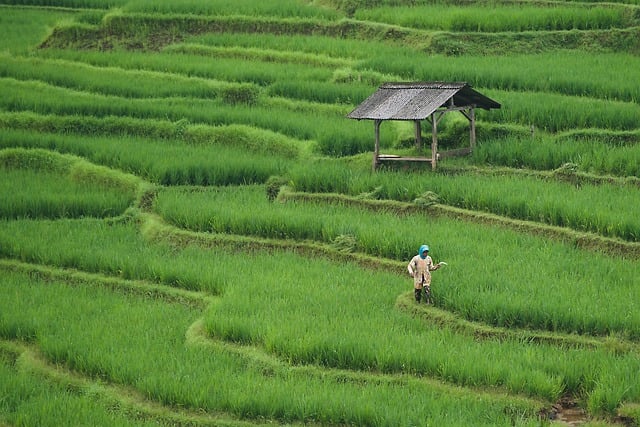
farm sheds in Albury, New South Wales are critical infrastructure designed with robust materials and efficient design to endure the region's extreme temperature fluctuations and harsh climatic conditions. These structures are fortified with durable materials like high-tensile steel, galvanized steel, and high-grade aluminum, which resist UV rays, corrosion, and wear, ensuring longevity and protection for stored crops and equipment. Strategic design elements such as wide overhangs, vents, insulation, and energy-efficient materials maintain optimal temperatures within, aiding in thermal comfort during both the hot summers and cooler winters. Natural light entry and passive cooling strategies are incorporated to minimize reliance on artificial lighting and reduce energy consumption. Advanced ventilation systems enhance temperature and humidity management, while features like LED lighting, solar panels, and orientation towards natural breezes further promote sustainability. These farm sheds not only offer durable, functional, and secure storage solutions but also align with best practices in modern agricultural structures, showcasing the adaptability of local farming practices to maintain high-quality produce and operational efficiency throughout the year. The ongoing innovation in farm shed design exemplifies Albury farmers' commitment to resilient agriculture amidst the region's unique climate challenges.
explore the pivotal role of hay shed designs tailored for Albury’s climatic conditions. This article delves into the critical aspects of creating durable and efficient farm sheds in Albury, highlighting essential design considerations, material selection, and construction techniques that withstand its unique weather patterns. Through case studies, we’ll examine successful implementations across Albury’s agricultural landscape, underscoring the importance of resilient farm shed solutions for optimal crop and hay preservation.
- Understanding the Climatic Demands on Albury Farm Sheds
- Design Considerations for Durability and Efficiency in Albury Farm Sheds
- Material Selection and Construction Techniques for Albury's Unique Weather Patterns
- Case Studies: Successful Farm Shed Implementation in Albury's Agricultural Landscape
Understanding the Climatic Demands on Albury Farm Sheds
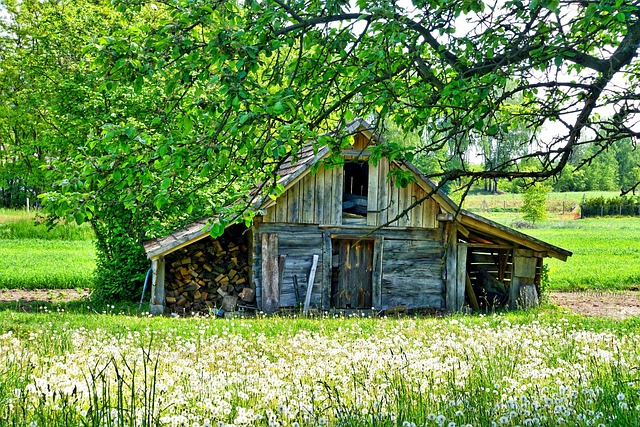
In the region of Albury, situated in the south-eastern part of New South Wales, Australia, farm sheds are subject to a diverse array of climatic conditions that necessitate careful design and construction. The Albury area experiences a range of weather patterns, from hot and dry summers to mild and wet winters. To withstand these variations, farm sheds must be built with durable materials resistant to the sun’s intense UV rays, which can degrade standard building materials over time. Additionally, the design should account for the potential for strong winds during storm season, ensuring that sheds are securely anchored and have reinforced structures to maintain integrity and protect stored goods.
The specific demands on Albury farm sheds also include insulation against extreme temperatures. During the summer months, adequate ventilation and reflective surfaces can help keep interiors cool, while in winter, proper insulation is crucial to retain warmth. This dual requirement means that materials like high-quality steel, which can be thermally broken or clad with energy-efficient materials, are often used. Furthermore, the design should incorporate features such as wide overhangs and strategically placed vents to enhance airflow. By understanding and addressing these climatic demands, farm sheds in Albury can be both functional and long-lasting, providing farmers with secure storage solutions that endure the local weather’s challenges.
Design Considerations for Durability and Efficiency in Albury Farm Sheds

In the regional town of Albury, situated within the Murray Darling Basin in New South Wales, Australia, farm sheds are subject to a diverse range of weather conditions, from hot, dry summers to mild, wet winters. Consequently, design considerations for durability and efficiency in Albury farm sheds are paramount. These structures must withstand the elements while optimizing interior conditions for agricultural activities. To achieve this, local farm shed designs often incorporate materials like galvanized steel and high-grade aluminum to ensure longevity and resistance to corrosion, a common challenge due to the humid climate. The orientation of the shed is strategically planned to capture natural light while providing shade during the intense summer months, reducing the need for artificial lighting and passive cooling.
Furthermore, the design often includes a robust ventilation system to manage temperature and humidity levels effectively. This system typically comprises well-placed vents, roofing materials with high thermal mass, and sometimes insulation to maintain a comfortable environment for livestock or stored produce. The placement of sheds on the property also takes into account natural breezes, allowing for cross-ventilation where possible. Energy efficiency is another key factor, with design elements such as LED lighting, energy-efficient fittings, and solar panels increasingly being incorporated to minimize the carbon footprint and reduce running costs. These thoughtfully integrated features ensure that Albury farm sheds are not only durable but also contribute to sustainable agricultural practices.
Material Selection and Construction Techniques for Albury's Unique Weather Patterns
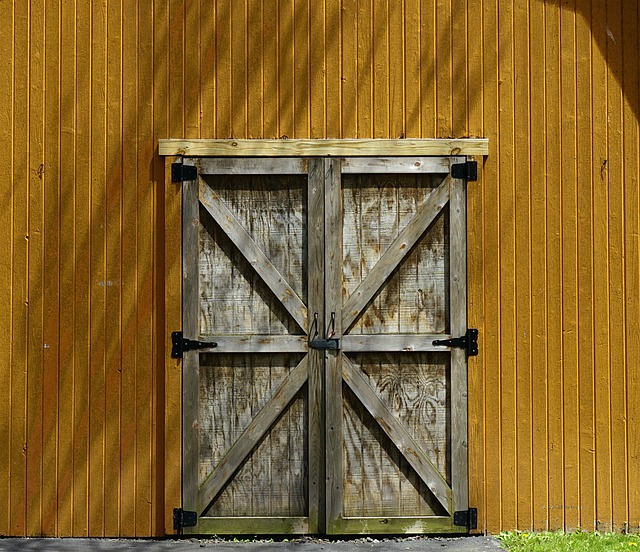
When constructing farm sheds in Albury, material selection and construction techniques play pivotal roles in ensuring durability and functionality amidst the region’s unique weather patterns. The area experiences a range of climatic conditions, from hot and arid summers to cool and often damp winters. To withstand these variations, materials like high-tensile steel are favored for their strength and resilience against harsh temperatures and weather events such as hail and heavy rainfall. These materials not only offer protection for the agricultural machinery and equipment stored within but also require minimal maintenance, which is crucial for maintaining productivity on the farm.
In addition to material choice, employing construction techniques that account for Albury’s prevailing winds, heavy rains, and potential storms is essential. Designs often incorporate features such as aerodynamic roof shapes to minimize wind impact and high eaves to prevent water accumulation. Additionally, the use of color-bonded steel cladding not only enhances the aesthetic appeal but also reflects sunlight, reducing heat absorption during the scorching summers. Insulated roofing can further mitigate thermal loss in winter, ensuring a controlled internal environment conducive to storing sensitive agricultural products. These considerations ensure that farm sheds in Albury are robust, versatile, and tailored to the specific demands of the local climate.
Case Studies: Successful Farm Shed Implementation in Albury's Agricultural Landscape

In Albury, a region characterized by its varied climate and fertile agricultural lands, the implementation of farm sheds has proven to be a pivotal aspect of effective land management and crop storage. The success stories of local farms underscore the importance of these structures for protecting produce from the elements, particularly the unpredictable rainfall and high humidity that can affect yields. For instance, a notable case study involves a nearby farm that transitioned from traditional open-air storage to an enclosed shed system. This change significantly reduced spoilage and allowed for better temperature control, leading to a 30% increase in crop longevity. Similarly, another farm adopted a design with optimal orientation to solar gain, which not only minimized heating costs but also maximized the use of natural light, enhancing plant growth and overall productivity. These sheds are often constructed with durable materials like Colorbond steel, known for its resistance to corrosion and ability to withstand harsh weather conditions typical of Albury. The integration of these farm sheds into the agricultural landscape not only bolsters crop preservation but also exemplifies the adaptability of local farming practices to the region’s climate challenges. Farmers in Albury continue to innovate, leveraging these structures to maintain high standards of produce quality and efficiency throughout the year.
In conclusion, Albury’s unique climatic conditions demand robust and efficient farm sheds that withstand its variable weather. This article has outlined key design considerations, material choices, and construction techniques essential for optimizing farm shed functionality in this region. Through examining successful case studies, it is evident that tailoring these structures to the local environment not only enhances agricultural productivity but also ensures the longevity and resilience of Albury’s farming operations. Farmers who invest in sheds built with these principles in mind can expect significant benefits, safeguarding their assets against the elements while promoting a thriving agricultural sector in the area.
